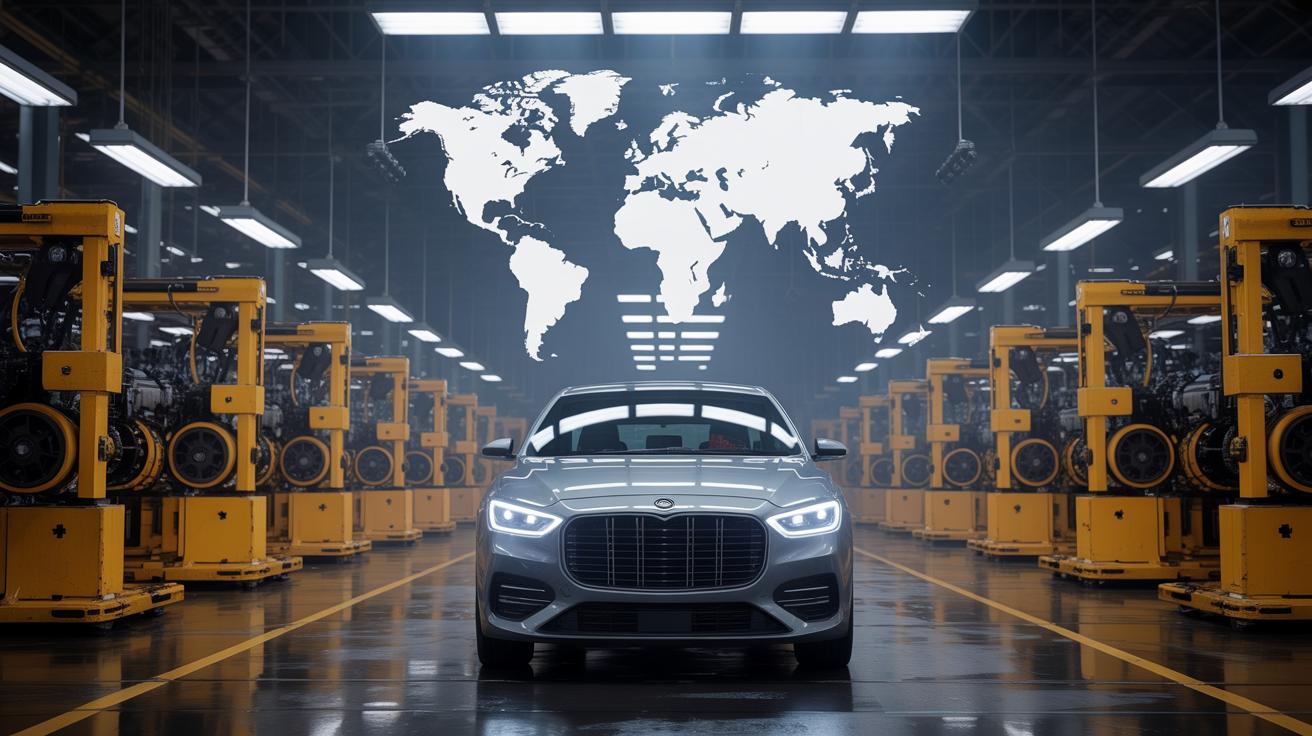What You Need to Know
- 🚨 China’s Export Curbs: Recent restrictions on rare earth elements by China’s Ministry of Commerce are impacting global industries.
- 🔧 Automotive Industry Hit: Europe’s automotive sector is facing production shutdowns due to dwindling rare earth supplies.
- 🌍 Global Supply Chain Vulnerability: The situation highlights the reliance on China for critical minerals, urging a push for supply diversification.
- 🔄 Industry Responses: Companies like Nissan and Mercedes-Benz are actively seeking alternatives to mitigate the impact.
- 📈 Future Implications: The rising demand for rare earths amid the clean energy transition presents both challenges and opportunities for innovation.
The global automotive industry is currently facing a significant challenge as China, the leading supplier of rare earth elements, implements export restrictions. These minerals are crucial for manufacturing electric vehicles, combustion engines, and even defense and energy systems. The effects of these restrictions are already being felt, particularly in Europe, where several auto supplier plants have been forced to shut down due to dwindling inventories. As the situation unfolds, industry leaders are voicing their concerns and seeking alternatives to maintain their production lines. This article delves into the complex dynamics of China’s rare earth export curbs and their implications for the global automotive sector.
China’s Rare Earth Monopoly
China holds a dominant position in the global market for rare earth elements, accounting for approximately 60% of the world’s production. These elements are vital components in various high-tech applications, including electric vehicle batteries and magnets used in motors. The recent export restrictions imposed by China’s Ministry of Commerce are part of a broader response to international trade tensions, particularly with the United States. These curbs have sent ripples across the global supply chain, highlighting the vulnerability of industries heavily reliant on these critical minerals.
The restrictions have affected several key rare earth elements, impacting both combustion engines and electric vehicles. As the demand for cleaner energy sources grows, the reliance on these minerals is expected to increase, raising concerns about future supply stability. The strategic importance of rare earths underscores the need for diversification and innovation in sourcing these materials.
Impact on European Automotive Industry
European automakers are feeling the brunt of China’s export restrictions, with several production lines already halted. The European Association of Automotive Suppliers (CLEPA) has reported multiple plant shutdowns, warning that more could follow as inventories deplete. Germany’s automotive sector, a critical component of the economy, is particularly exposed to these disruptions, given its significant dependence on global supply chains.
German industry leaders have sounded the alarm, urging both national and European Union lawmakers to address the issue with Chinese authorities. The export controls have not only affected production but have also underscored the broader strategic challenges that come with reliance on a single dominant supplier. As Europe grapples with these challenges, the call for alternative sources and strategies to mitigate risks is growing louder.
Responses from Industry Leaders
Automakers around the globe are actively seeking solutions to the challenges posed by China’s rare earth curbs. Nissan, for instance, is collaborating with the Japanese government and industry associations to minimize the impact on its operations. The automaker emphasizes the need for flexibility and the exploration of alternative materials to ensure long-term sustainability.
Similarly, Mercedes-Benz has implemented a strategy to secure critical raw materials, aiming to reduce dependency on rare earths. The company is exploring new material compositions that could potentially eliminate the use of heavy rare earth metals, such as dysprosium, in its electric drives. Meanwhile, Volkswagen reports stable supplies, thanks to ongoing efforts by its suppliers to obtain necessary export licenses. These proactive measures highlight the industry’s commitment to maintaining production stability amidst external pressures.
Future Implications and Strategies
The current situation with China’s rare earth export restrictions serves as a stark reminder of the need for diversification in the supply chain. Automakers and governments alike are recognizing the importance of developing alternative sources and enhancing domestic capabilities to reduce dependency on a single supplier. This shift could spur innovation and investment in new technologies and materials, fostering a more resilient industry.
As the clean energy transition accelerates, the demand for rare earths and critical minerals will continue to rise. This trend presents both challenges and opportunities for the automotive sector, as it seeks to balance sustainability with supply chain security. The industry’s response to these challenges will shape its future, determining its ability to adapt to evolving global dynamics.
As the automotive industry navigates the complexities of China’s rare earth export restrictions, it must consider long-term strategies for resilience and sustainability. The ongoing situation raises critical questions about the future of global supply chains and the role of innovation in overcoming resource dependencies. How will automakers and governments collaborate to ensure a stable and sustainable supply of critical materials in the years ahead?
Did you like it?4.5/5 (30)







12 comments
Aaron
Is it just me, or does this sound like a plot for a new geopolitical thriller?
sadie
Great article! Do you think this will spur more innovation in alternative materials?
morgan_shadowdancer
How does this affect electric vehicle production? Seems like a big hurdle.
charlesvelocity3
Thanks for the update! Wonder how long it will take for the industry to recover.
tiger_artemis
Time to go back to horse-drawn carriages? 😂
anthony9
Could this lead to higher car prices in Europe? Asking for a friend!
trinityhorizon
It’s crazy how one country’s policy can ripple through the entire world like this!
haley7
Why didn’t the auto industry see this coming and prepare better?
aurora
Are there any countries that could potentially step up as alternative suppliers?
elizabethcipher
Who would’ve thought rare earths could cause so much chaos? 😅
mackenzie_tranquility
Fascinating read! Thanks for the detailed breakdown on this complex issue.
aubrey5
Wow, didn’t know China had such a grip on rare earths! What’s next for the auto industry? 🤔